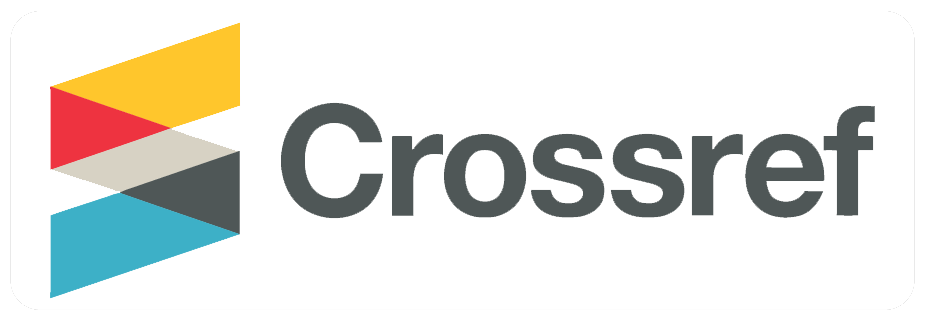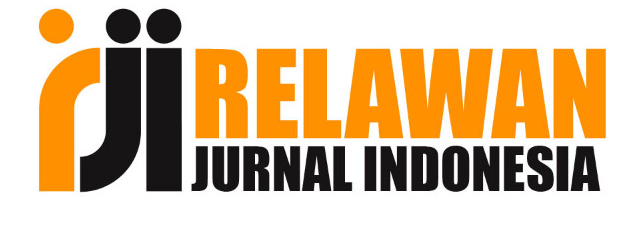Analisis Implementasi Kesiapan Pembelajaran Online Berbasis Colaborative Learning Menggunakan Model E-Learning Readiness (ELR) pada UIN Raden Fatah Palembang
DOI:
https://doi.org/10.36982/jiig.v13i2.2298Abstrak
Online Learning or what is often referred to as e-learning, a learning method that is carried out through electronic media networks. E-learning has become an alternative material for problems in the field of education, both as an additional learning medium or a complement to the learning process, the learning process carried out in the scope of several places such as campuses, schools or additional tutoring usually still uses the old method, where teaching materials are delivered through face-to-face, both verbally and non-verbally, the use of technology in the world of education, be it campuses, schools or other tutors, should be used as a whole, e-learning technology is present as a means of supporting education at this time where e-learning present to bring a new color in changing the education system. Collaborative learning does not prioritize a system of competition between students. Students who have the ability to help more underprivileged students, and vice versa, students who feel less capable ask for help from capable students, so that an atmosphere of mutual learning is created. This study aims to analyze the readiness of implementation and strategy and focuses on the application of e-learning at Raden Fatah State Islamic University, Palembang. By using the readiness model, the researcher found e-learning at the Raden Fatah State Islamic University in Palembang. that the application of e-learning at the Raden Fatah State Islamic University of Palembang is ready, based on the research results the availability of human resources can support the existing system, the university also provides several computers to be used while studying, and lecturers have basic skills in operating computers to use e -learning so this can make it easier for lecturers to provide material to students.
Keywords : E-learning, readiness, collaborative elearning.
Referensi
Fariani, R. I. (2013) ‘Pengukuran Tingkat Kesiapan E-Learning (E-Learning Readiness)’, in Seminar Nasional Aplikasi Teknologi Informasi (SNATI), pp. 1–7.
Inah, E. N. and Pertiwi, U. A. (2017) ‘Penerapan Collaborative Learning Melalui Permainan Mencari Gambar untuk Meningkatkan Hasil Belajar IPA di SDN Tabanggele Kecamatan Anggalomoare Kabupaten Konawe’, Jurnal Al-Ta’dib, 10(1), pp. 19–36.
Marpaung, M. A. et al. (2021) ‘Mengukur kesiapan implementasi E-Learning menggunakan Model E-Learning Readiness’, Edukatif : Jurnal Ilmu Pendidikan, 3(5), pp. 2247–2257.
Prayudi, Y. (2009) ‘Kajian Awal : E-Learning Readiness Index ( Elri ) Sebagai Model Bagi Evaluasi E-Learning Pada Sebuah Institusi’, in Seminar Nasional Aplikasi Teknologi Informasi (SNATI). Yogyakarta, pp. 62–67. Available at: https://journal.uii.ac.id/Snati/article/view/953/909.
Pulungan, R., Ginting, L. S. D. br. and Nasution, A. S. (2020) ‘Kelebihan Dan Kekurangan E-Learning Berdasarkan Pengalaman Mahasiswa Umn Al Washliyah’, in Membangun Kearifan Lokal Melalui Inovasi Menuju Masa Depan Kreatif, pp. 504–507.
Ramadan, R., Pradnyana, I. M. A. and Suryasa, P. W. A. (2019) ‘Pengukuran Tingkat Kesiapan Implementasi E-Learning menggunakan Model Chapnick’, Jurnal Pendidikan teknologi dan Kejuruan, 16(2), pp. 258–266.
Respati, Y. A. (2018) ‘Collaborative Learning Dalam Upaya Peningkatan Keaktifan Mahasiswa Pada Proses Pembelajaran’, Jurnal Efisiensi - Kajian Ilmu Administrasi, XV(2), pp. 15–23.
Salmilah (2019) ‘Kesiapan Implementasi E-Learning ( E -Learning Readiness )’, Didaktika: Jurnal Kependidikan, 8(2), pp. 83–88. Available at: https://jurnaldidaktika.org/contents/article/view/70.
Waaidhoh, N. Al, Sediyono, E. and Hartomo, K. D. (2020) ‘Analisis Faktor E-Learning Readiness dengan Menggunakan Principal Component Analysis’, Jurnal Sistem Informasi Bisnis, 10(01), pp. 73–83.
Waryanto, N. H. and Insani, N. (2013) ‘Tingkat Kesiapan ( Readiness ) Implementasi E-Learning Di Sekolah Menengah Atas Kota Yogyakarta the Readiness Level of Implementing E-Learning in Yogyakarta High’, Jurnal Pendidikan Matematika dan Sains, 1(2), pp. 117–124.
Unduhan
Diterbitkan
Cara Mengutip
Terbitan
Bagian
Lisensi

This work is licensed under a Creative Commons Attribution-ShareAlike 4.0 International License.











